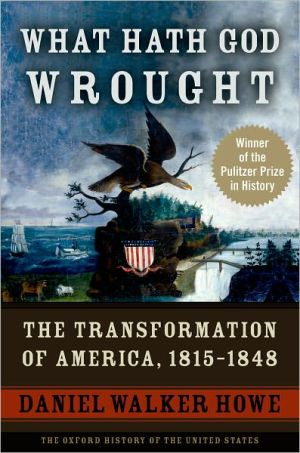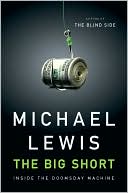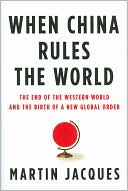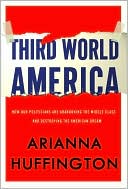What Hath God Wrought: The Transformation of America, 1815-1848
In this addition to the Oxford history series, Howe illuminates the era from the battle of New Orleans to the end of the Mexican-American War, weaving together political and military events with social, economic, and cultural history.\ \ \ Winner of the 2008 Pulitzer Prize for History; Finalist for the 2008 National Book Critics Circle Award for Nonfiction\
Search in google:
The Oxford History of the United States is by far the most respected multi-volume history of our nation. In this Pulitzer prize-winning, critically acclaimed addition to the series, historian Daniel Walker Howe illuminates the period from the battle of New Orleans to the end of the Mexican-American War, an era when the United States expanded to the Pacific and won control over the richest part of the North American continent. Howe's panoramic narrative portrays revolutionary improvements in transportation and communications that accelerated the extension of the American empire. Railroads, canals, newspapers, and the telegraph dramatically lowered travel times and spurred the spread of information. These innovations prompted the emergence of mass political parties and stimulated America's economic development from an overwhelmingly rural country to a diversified economy in which commerce and industry took their place alongside agriculture. In his story, the author weaves together political and military events with social, economic, and cultural history. He examines the rise of Andrew Jackson and his Democratic party, but contends that John Quincy Adams and other Whigs—advocates of public education and economic integration, defenders of the rights of Indians, women, and African-Americans—were the true prophets of America's future. He reveals the power of religion to shape many aspects of American life during this period, including slavery and antislavery, women's rights and other reform movements, politics, education, and literature. Howe's story of American expansion culminates in the bitterly controversial but brilliantly executed war waged against Mexico to gain California and Texas for the United States. Winner of the New-York Historical Society American History Book PrizeFinalist, 2007 National Book Critics Circle Award for Nonfiction The Barnes & Noble Review What makes history endlessly fascinating is that there's nothing inevitable about the events that happened or the decisions made by those who helped make them happen. It all could have been different, and perhaps (upon reflection) should have been. History at its best is a symphony of views adopted or discarded, but its music can still be heard by those who listen closely.
Maps xiEditor's Introduction xiiiAbbreviations Used in Citations xviiIntroduction 1Prologue: The Defeat of the Past 8The Continental Setting 19From the Jaws of Defeat 63An Era of Good and Bad Feelings 91The World That Cotton Made 125Awakenings of Religion 164Overthrowing the Tyranny of Distance 203The Improvers 243Pursuing the Millennium 285Andrew Jackson and His Age 328Battles over Sovereignty 367Jacksonian Democracy and the Rule of Law 411Reason and Revelation 446Jackson's Third Term 483The New Economy 525The Whigs and Their Age 570American Renaissance 613Texas, Tyler, and the Telegraph 658Westward the Star of Empire 701The War Against Mexico 744The Revolutions of 1848 792Finale: A Vision of the Future 837Bibliographical Essay 856Index 879
\ Jonathan YardleyHowe brings an impressive array of strengths to the daunting task of encapsulating these busy, complicated three-plus decades within a single (admittedly, very long) volume. Emeritus professor of history at Oxford and UCLA, he grasps the meaning as well as the details of developments and events. He has a fine eye for telling detail…and for the revealing quotation. Beyond that, he is a genuine rarity: an English intellectual who not merely writes about the United States but actually understands it.\ —The Washington Post\ \ \ \ \ Publishers WeeklyIn the latest installment in the Oxford History of the United States series, historian Howe, professor emeritus at Oxford University and UCLA (The Political Culture of the American Whigs), stylishly narrates a crucial period in U.S. history-a time of territorial growth, religious revival, booming industrialization, a recalibrating of American democracy and the rise of nationalist sentiment. Smaller but no less important stories run through the account: New York's gradual emancipation of slaves; the growth of higher education; the rise of the temperance movement (all classes, even ministers, imbibed heavily, Howe says). Howe also charts developments in literature, focusing not just on Thoreau and Poe but on such forgotten writers as William Gilmore Simms of South Carolina, who "helped create the romantic image of the Old South," but whose proslavery views eventually brought his work into disrepute. Howe dodges some of the shibboleths of historical literature, for example, refusing to describe these decades as representing a "market revolution" because a market economy already existed in 18th-century America. Supported by engaging prose, Howe's achievement will surely be seen as one of the most outstanding syntheses of U.S. history published this decade. 30 photos, 6 maps. (Sept.)\ Copyright 2007 Reed Business Information\ \ \ Library JournalThis authoritative addition to Oxford's "History of the United States" series is a product of synthesis and astute analysis. Intellectual and cultural historian Howe (Making the American Self: Jonathan Edwards to Abraham Lincoln) touches upon the rapidly expanding nation's economy, foreign relations, and social structures, taking into account race, gender, and ethnicity, and bringing special insights to his discussion of religious revivals and the evolution of moral consciousness, reform movements, and political institutions. The evocative title, which was the first message carried by Morse's telegraph, refers to the changes wrought by religious sensibilities as well as those wrought by technological breakthroughs. Howe boldly emphasizes the "communications revolution" rather than the "market revolution" of the early 19th century, asserting that the latter largely happened among 18th-century commercial farmers. On the other hand, he does not emphasize a "Jacksonian America." Andrew Jackson, he asserts, was not as uniformly democratic or influential as his supporters maintain. A worthy addition to public and academic institutions; beginning scholars will appreciate the maps and the extensive bibliographic essay, fleshed out by the journal citations in the footnotes. Highly recommended.\ —Frederick J. Augustyn\ \ \ \ \ \ The Barnes & Noble ReviewWhat makes history endlessly fascinating is that there's nothing inevitable about the events that happened or the decisions made by those who helped make them happen. It all could have been different, and perhaps (upon reflection) should have been. History at its best is a symphony of views adopted or discarded, but its music can still be heard by those who listen closely.\ In more than 900 pages, Daniel Walker Howe offers more than just the traditional political narrative of Jacksonian America, with its rambunctious popular politics, breathtaking technological advancements (railroads, telegraphs), and aggressive national expansionism. Howe's outstanding book is suffused with the sprawling energy and epic scope of the era it describes. Howe vividly presents the dominant themes of expansion and spreading democratization, best embodied in the person of Andrew Jackson, but he also examines dissenting views with a historian's understanding that these "losing voices" have never quite left the battlefield.\ The title What Hath God Wrought comes from the first message sent by Samuel Morse's revolutionary telegraph device in 1844. The telegraph, along with railroads, would transform the young Republic, connecting cities, spreading news quickly across the frontier, and supporting national expansion. While most Americans celebrated Morse's new technology, Howe makes it clear that some did not. He quotes the writer Henry David Thoreau, who was not so quick to see the telegraph as a life-changing marvel: "We are in great haste to construct a magnetic telegraph from Maine to Texas," Thoreau noted, "but Maine and Texas, it may be, have nothing important to communicate."\ Howe's best achievement is in insightfully blending political history (the acts of presidents and generals) with social history (how everyone else lived and worked). As the author notes on his first page: "This reflects my own conviction that both kinds of history are essential to a full understanding of the past." Thus, in addition to skillfully describing how slavery expanded into territories once controlled by Native Americans and Mexicans, Howe explains how religious revivalism helped fuel social reform movements such as abolitionism and temperance. The national fervor for geographic expansion was matched by the fervor for spiritual expansion.\ The era's burgeoning evangelical movement, centered in Protestant churches and giving unique opportunities for Christian women to have a public voice, "devised new means of influencing public opinion outside of politics," writes Howe. These Christian reformers revolutionized areas of national life, including "education, literature, magazines, religious revivals, and organized reform," he explains. But the progeny of what was called the Second Great Awakening were often as divided as the nation's fractious politics. A muscular brand of Christianity that could support national expansion behind a banner of "manifest destiny" could also be deeply divided over the issue of slavery. The intellectual debates over slavery weren't just about differing interpretations of the Constitution but about differing interpretations of Scripture.\ The era's most dominant political force, Andrew Jackson, gets close treatment here, in terms of both personality and policy. The narrative opens with the upwelling of national pride triggered by General Jackson's 1815 victory at the Battle of New Orleans. Many historians have viewed Jackson as the greatest symbol of frontier individualism, but Howe shows us how Jackson's paramount goal of national expansion was achieved through the conscious decisions and active involvement of the federal government.\ Jackson's policy of Indian removal was his top priority in advancing economic opportunities for all (and by "all," Jackson meant free white men). In Howe's view, one he argues with strong scholarly support, Jacksonian Democracy was primarily "about the extension of white supremacy across the North American continent." If Indians needed to be swindled or their land taken, if African Americans needed to be enslaved, Jackson had no problem with it. Howe also asserts that Jackson's political accomplishments were as much fueled by personality as public policy.\ As for the famous battle between Jackson and the Bank of the United States, Howe frames it as, in part, a power struggle between the president and Bank president Nicholas Biddle. "What Jackson minded most about the national bank was that it constituted a rival power center" that he couldn't control. Jackson succeeded in destroying the Bank, but Howe shows how this led to financial instability that helped trigger the devastating national Panic of 1837.\ When South Carolina asserted the power to "nullify" federal legislation it deemed unconstitutional, Jackson could have been in a bind. He was, after all, a southern slaveholder who championed states' rights and was viscerally suspicious of federal intervention. Yet Jackson put these qualms aside, viewing the "nullification" crisis as a personal challenge to his authority as president. Jackson, explains Howe, "took nullification as a patriotic and personal challenge from a man he had already come to distrust and loathe," South Carolina senator John C. Calhoun.\ Although Jackson depicted himself as a champion of democratic ideology, Howe exposes the firebrand president's "profoundly authoritarian instincts." He discusses, for example, how a religion-fueled abolitionist movement grew during Jackson's presidency, and how Jackson supported censoring the U.S. mail so that abolitionist newspapers like The Liberator would not be delivered in the South. Howe makes the case that this anti-abolitionist censorship was possibly "the largest peacetime violation of civil liberties in U.S. history."\ The nation expanded greatly in this crucial 30-year period, and slavery with it. Indeed, after wars with Indians and with Mexico, and despite passionate debate about the wisdom of national expansion (and slavery), the United States took control of territory all the way to the Pacific (Howe includes a map showing the even broader designs of James K. Polk, which took in Havana, Tampico, and even Canc?n!) Yet the horrible question of slavery had yet to be resolved, and the growing problems brought by industrialization and urbanization and legal inequality remained unsettled. Howe lets us watch these debates raging, in the realms of politics, society, and ideas, and many of them still rage today, from the "proper" role of women to the rights of immigrants.\ What Hath God Wrought winningly mirrors the energy, curiosity, and massive ambition of the age he so vividly describes. History lovers will rejoice at what Daniel Walker Howe hath wrought. --Chuck Leddy\ Chuck Leddy is a member of the National Book Critics Circle who writes frequently about American history. He reviews books regularly for The Boston Globe, as well as Civil War Times and American History magazines. He is a contributing editor for The Writer magazine.\ \ \








